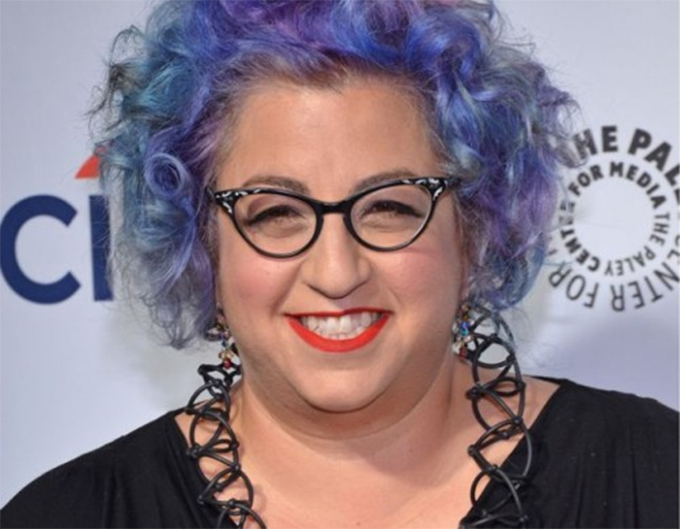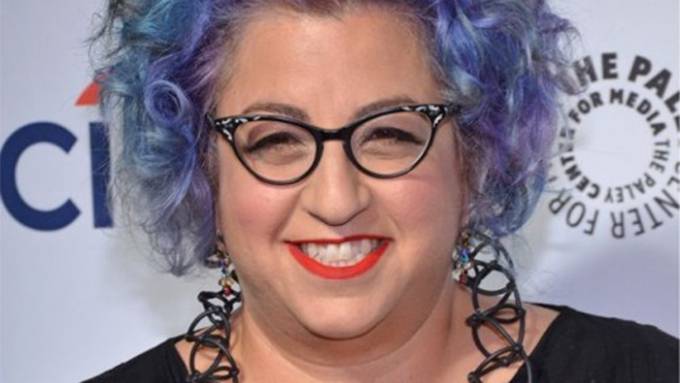Jenji Kohan and the Jewish Hyper-Sexualization of Western Culture
Source: theoccidentalobserver.net

As detailed in The Culture of Critique, Freud and his followers regarded anti-Semitism was a universal pathology which had its roots in sexual repression. The theoretical basis for this can be found in Freud’s Three Essays on the Theory of Sexuality where he linked aggression to the frustration of human drives — especially the sex drive. Kevin MacDonald notes that: “Although Freud himself later developed the idea of a death instinct to explain aggression, a consistent theme of the Freudian critique of Western culture, as exemplified for example by Norman O. Brown, Herbert Marcuse, and Wilhelm Reich, has been that the liberation of sexual repressions would lead to lowered aggression and usher in an era of universal love.
According to this view, anti-Semitism, regarded as a form of aggression, results from the denial of sexuality, and the role of the Jewish mission of psychoanalysis was to end anti-Semitism by freeing humanity of its sexual repressions. Individuals preoccupied with sex were considered unlikely to concern themselves with the activities of Jews, much less to organize politically against them. People who spend most of their time in search of sexual stimulation are unlikely to organize pogroms or threaten the rich and powerful Jewish establishment. In his widely cited 2004 essay from the Jewish Quarterly Nathan Abrams observed that:
Jews in America have been sexual revolutionaries. A large amount of the material on sexual liberation was written by Jews. Those at the forefront of the movement which forced America to adopt a more liberal view of sex were Jewish. Jews were also at the vanguard of the sexual revolution of the 1960s. Wilhelm Reich, Herbert Marcuse and Paul Goodman replaced Marx, Trotsky and Lenin as required revolutionary reading. Reich’s central preoccupations were work, love and sex, while Marcuse prophesied that a socialist utopia would free individuals to achieve sexual satisfaction. Goodman wrote of the “beautiful cultural consequences” that would follow from legalizing pornography: it would “ennoble all our art” and “humanize sexuality.”
The hyper-sexualization of Western culture (the most conspicuous result of the Jewish takeover and virtual monopolization of the Western media and entertainment industries) can, therefore, be viewed as the practical ethno-political application of psychoanalytic theory to a traditional Western culture regarded as inherently authoritarian, fascistic and anti-Semitic due to its “repressive” sexual morality. MacDonald points out that “psychoanalysis has been a veritable treasure trove of ideas for those intent on developing radical critiques of Western culture” with these ideas influencing thought in a wide range of areas, “including sociology, child rearing, criminology, anthropology, literary criticism, art, literature, and the popular media.
I recently noted how Daniel Jonah Goldhagen claims to be bewildered by Billy Graham’s “nutty” comment in his secretly recorded conversation with President Nixon in 1972 that Jews were “the ones putting out the pornographic stuff,” and that so severe was the danger that Jews pose that their “stranglehold has got to be broken or this country’s going down the drain. Of course Goldhagen is uninterested in whether Graham’s assertion has any grounding in empirical reality — whether Jews actually are the ones mainly responsible for “putting out the pornographic stuff,” and are thereby undermining the cultural foundations and supports for high-investment parenting and sending the country “down the drain.” A quick look at the output of Hollywood, and the individuals responsible for it, is, however, enough to confirm that Graham’s assertion is absolutely correct. Not only have Jews long dominated the pornography industry, they have also been pivotal in “mainstreaming” pornographic themes and images through the movies and TV programs they produce.
Jenji Kohan — From Weeds to Orange is the New Black
To take just one of countless possible examples, consider the enormously popular program Orange is the New Black (hereafter OItNB). This show is the brainchild of screenwriter and executive producer Jenji Kohan who comes from a prominent Jewish show business family. Her father, Buz Kohan, a frequent writer for the Academy Awards, is the recipient of 11 Emmy Awards in a career that spans five decades. Her mother, Rhea Kohan, is a novelist, while her eldest brother, David, is the co-creator and producer of the gay-themed NBC sitcom Will & Grace. According to Danielle Berrin, writing for the “Hollywood Jew” section of The Jewish Journal:
Kohan could be the Jewish girl next door. But there is edginess to her — her hair perpetually tousled, and she always wears those signature eyeglasses with the art-deco glamour. … Her earliest fantasy was to be a famous actress-singer named Rainbow Star. But she couldn’t act. Or sing. Years later, after some time working in television, Kohan considered rabbinical school. But none of those whims proved as powerful as her (very Jewish) birthright, which has catapulted Kohan to many a writer’s highest aspiration, helming her own TV show.
Kohan worked for her brother David on Will & Grace during her early years, but decided his brand of humor was too tame. “David took the big, commercial, funny route; I was always a little darker personally,” she explains, “and not terrific within the system. I had to make my own way.” It was with specific reference to her brother David and the plethora of activist Hollywood Jews like him, that Vice President Joe Biden noted in 2013 how Jewish influence on American culture had been “immense.” Speaking of the prominent roles Jews had played in transforming American attitudes toward civil rights, feminism, and homosexual rights, he noted that:
What affects the movements in America, what affects our attitudes in America are as much the culture and the arts as anything else. … It wasn’t anything we legislatively did. It was ‘Will and Grace,’ it was the social media. Literally. That’s what changed peoples’ attitudes. That’s why I was so certain that the vast majority of people would embrace and rapidly embrace [gay marriage]. Think behind of all that, I bet you 85 percent of those changes, whether it’s in Hollywood or social media are a consequence of Jewish leaders in the industry. The influence is immense, the influence is immense.
In a similar vein, the Jewish writer and intellectual Chaim Bermant observed that “the Jews that came to dominate Hollywood” between them “did more to determine American attitudes and tastes than the churches or even the schools. This is hardly surprising given that, as cultivation theory and social learning theory postulate, exposure to media content leads to increased sympathy for the values embedded in the content, as well as an increased propensity to regard the fictional portrayals as representations of reality.
[...]
Read the rest: theoccidentalobserver.net






















